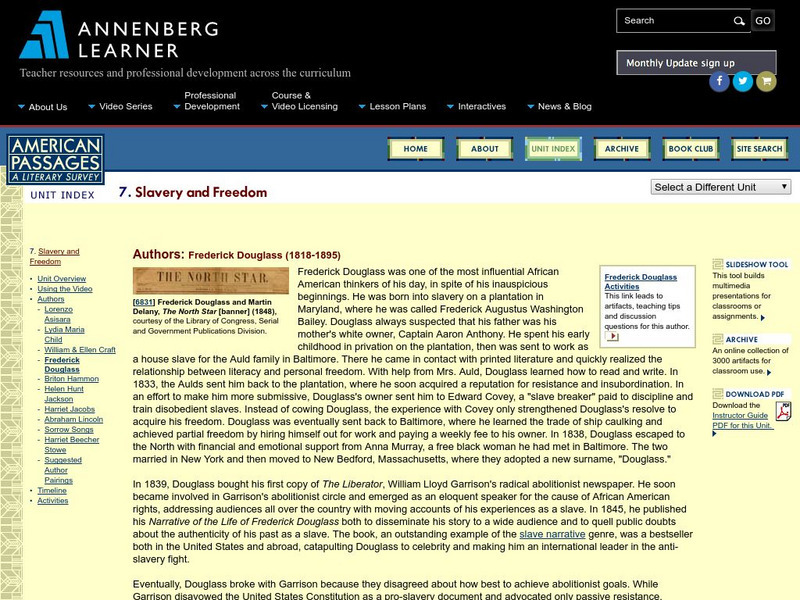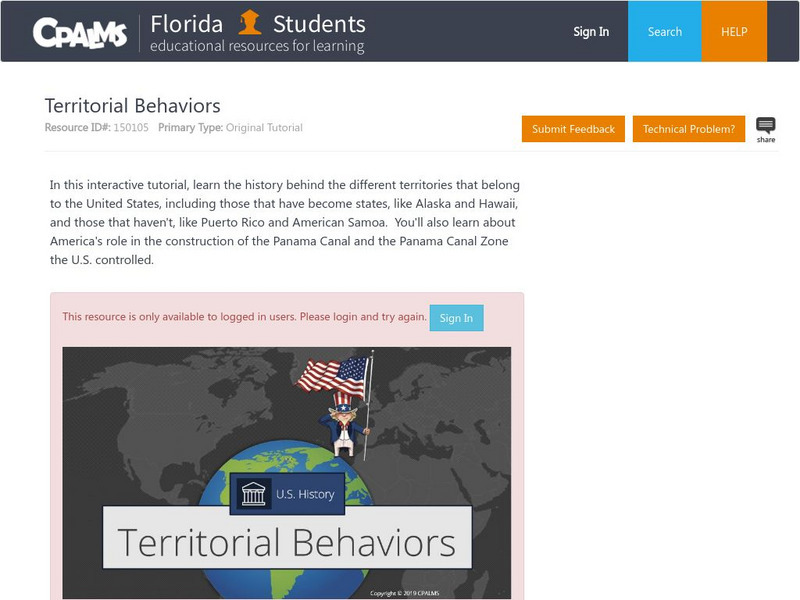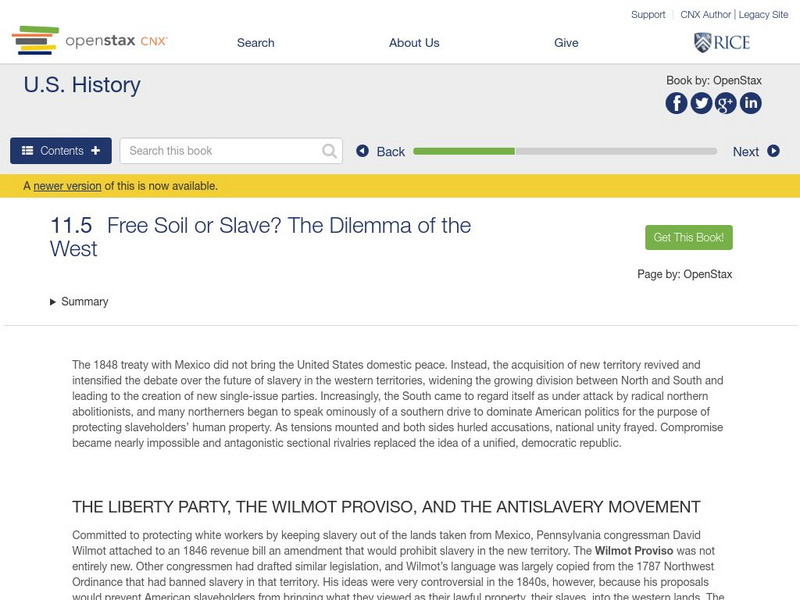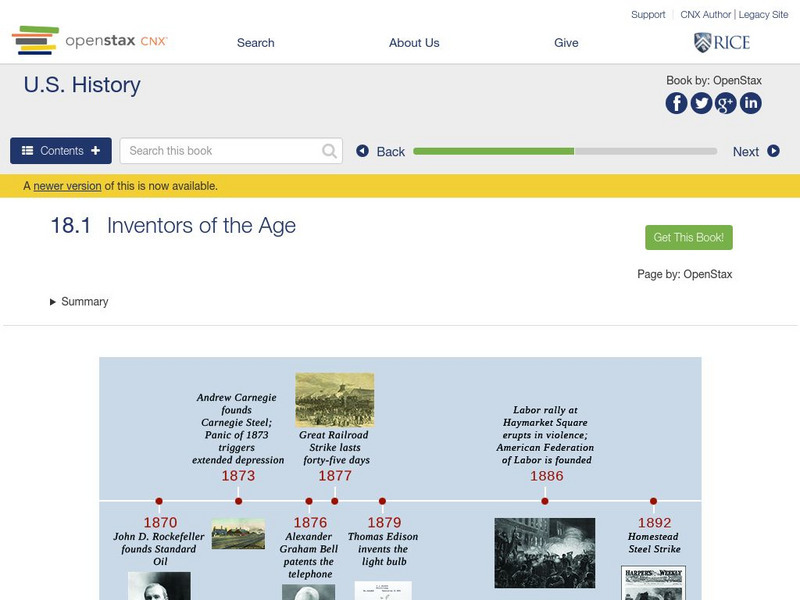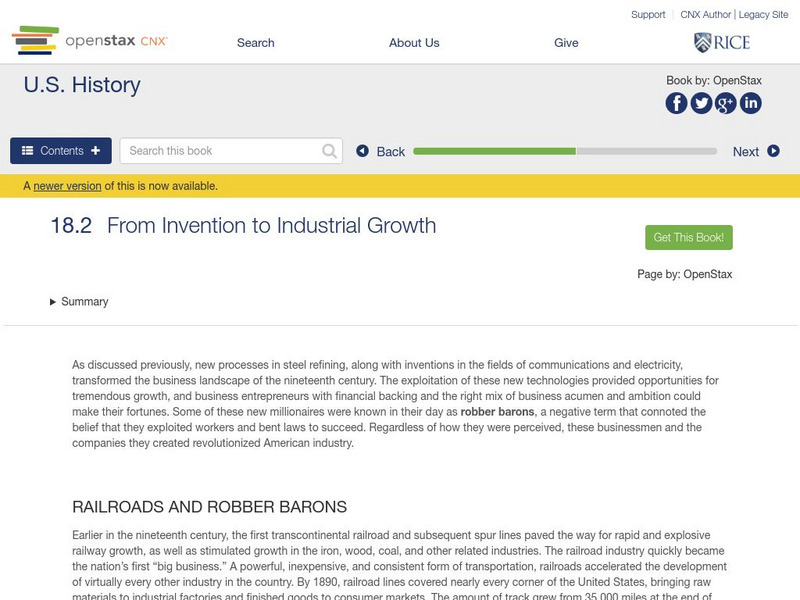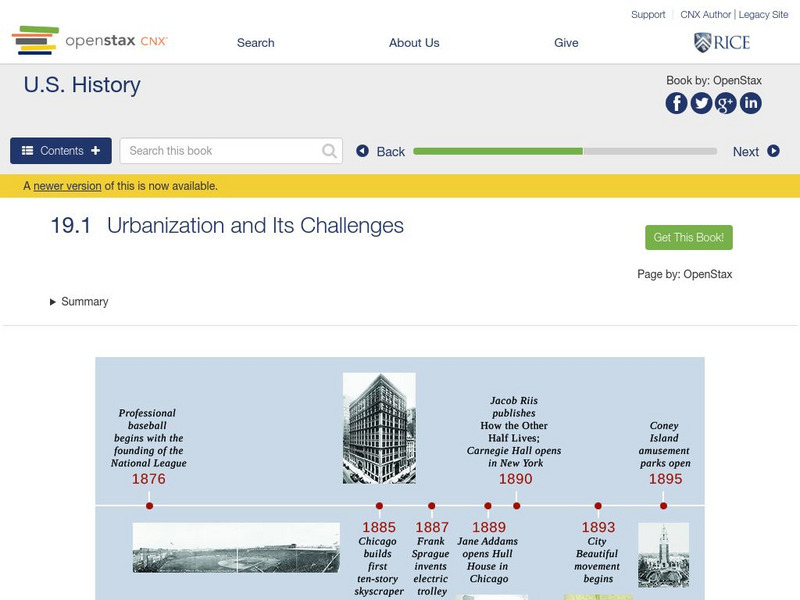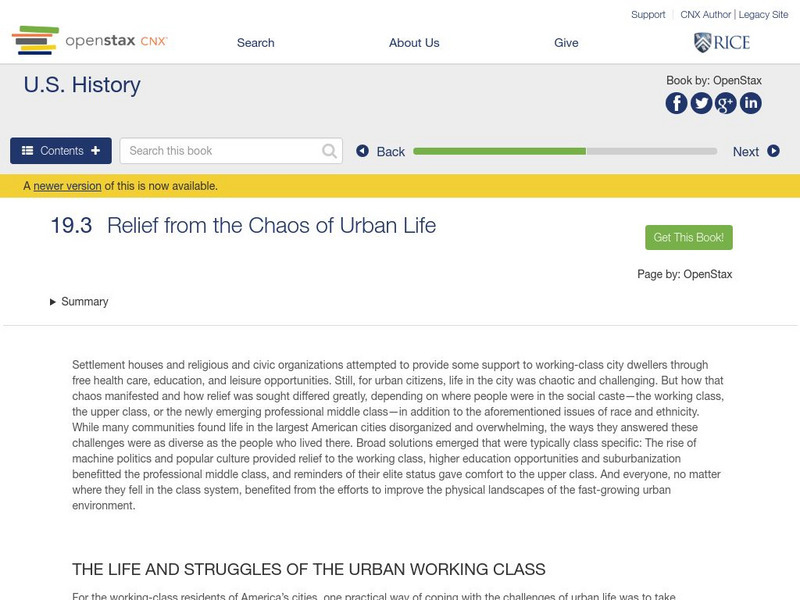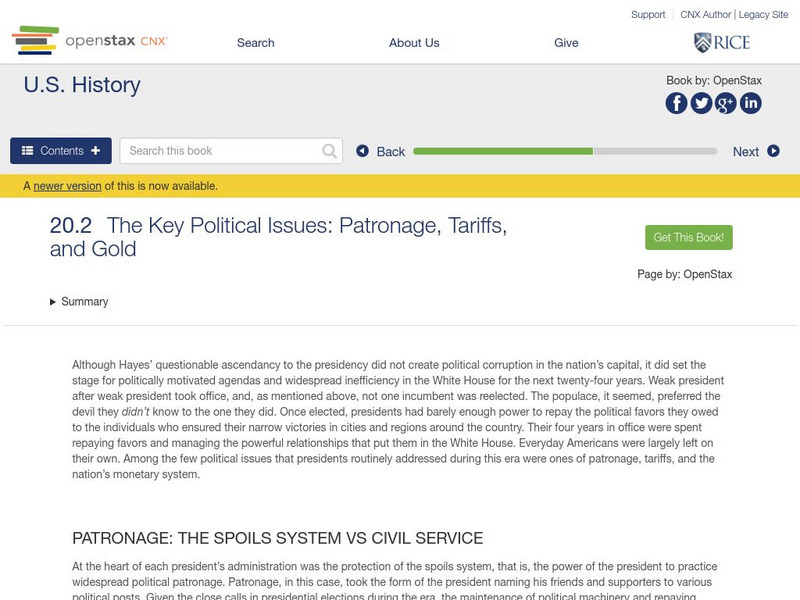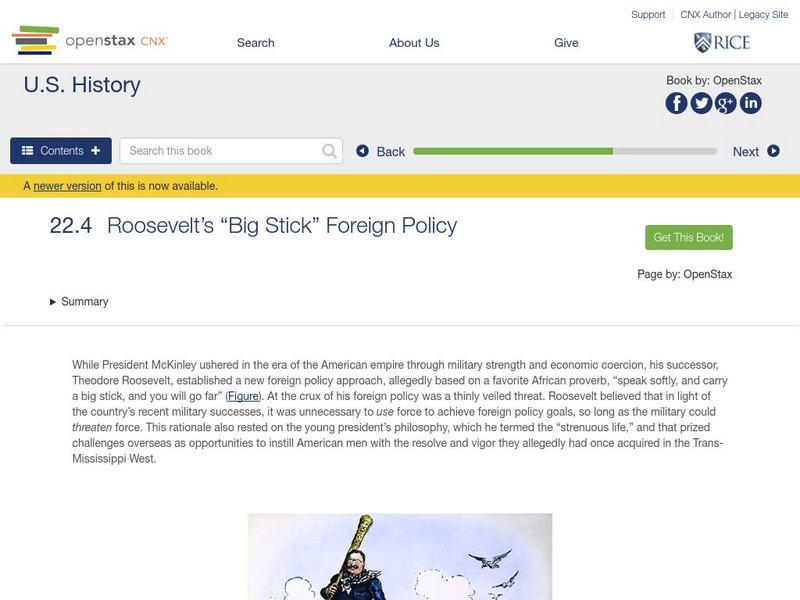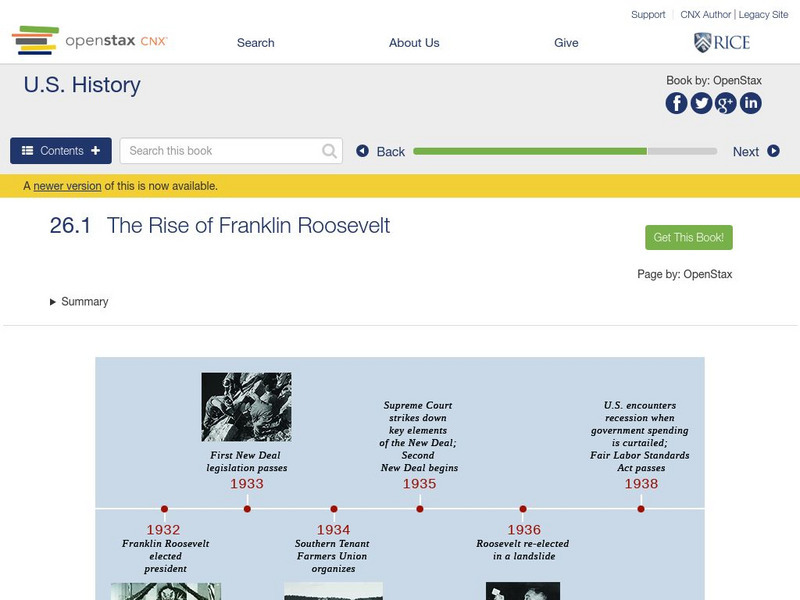National Institutes of Health
Paleoindian Large Mammal Hunters on the Plains of North America (1998)
Published journal article that details faunal studies, hunting, weaponry, hunting strategy, butchering, and ritual activities. Seven cultural complexes are considered: Clovis, Goshen, Folsom, Agate Basin, Hell Gap, Alberta, and Cody.
Geographypods
Geographypods: Hazards and Risk Management: Earthquakes
This learning module looks at earthquakes. It discusses areas of earthquake activity, how they are measured using the Richter scale, and how scientists try to predict earthquakes. Includes handouts, slideshows, activities, and videos.
US National Archives
National Archives: Lesson Plans Congress, the President, and the War Powers
Examine the power of Congress to make war by studying primary source documents from various wars throughout U.S. history. Students will analyze how the balance of authority between the legislative branch and executive branch has changed...
Other
Notes for Chapter 3: (Marginal Product)
This site provides a good analysis of the concepts of marginal product, marginal revenue product, marginal costs, and how a monopsonist determines wages and quantity of labor hired.
University of Missouri
Famous Trials: The Nelson Mandela Trial
Nelson Mandela was willing to die for his belief in a free society where all people can live in harmony with equal opportunities. Instead, he spent eighteen years in jail. Read this in-depth summary of his trial. Included are...
University of California
The History Project: Ideas and Strategies of the Woman Suffrage Movement
Although the campaign for Woman Suffrage in the United States began with the Seneca Falls Convention of 1848, six decades later the leaders of the movement could claim victories in only four, sparsely-populated Western states, Colorado,...
Annenberg Foundation
Annenberg Learner: American Passages: Slavery and Freedom: Frederick Douglass
This concise biography presents author/journalist Frederick Douglass, who was groundbreaking in his slave narratives and establishing "The North Star" abolitionist periodical in mid-nineteenth-century America. See "Frederick Douglass...
US National Archives
National Archives: Confronting Work Place Discrimination on the Wwii Homefront
African Americans were not able to take advantage of the booming industries as Americans were mobilizing for WWII. The FEPC was established to make sure Roosevelt's executive order providing for equal opportunities in defense industries...
CPALMS
Florida State University Cpalms: Florida Students: Territorial Behaviors
In this tutorial, students learn about the history of American acquisition of new territories including those that became states and those in other parts of the world. America's involvement with the Panama Canal is also covered. A PDF...
OpenStax
Open Stax: Identity During the American Revolution
From a chapter on "America's War for Independence," this section of the chapter explains Loyalist and Patriot sentiments and identifies different groups that participated in the Revolutionary War.
OpenStax
Open Stax: Free Soil or Slave? The Dilemma of the West
By reading this section of a chapter on "Westward Expansion," students will be able to describe the terms of the Wilmot Proviso and the Compromise of 1850, discuss why the Free-Soil Party objected to the westward expansion of slavery and...
OpenStax
Open Stax: John Brown and the Election of 1860
By reading this section from a chapter on " The Tumultuous 1850s," students will be able to describe John Brown's raid on Harpers Ferry and analyze the results of the election of 1860.
OpenStax
Open Stax: Making a Living in Gold and Cattle
In this section, students will learn about the major discoveries and developments in western gold, silver, and copper mining in the mid-nineteenth century. They will be able to explain why the cattle industry was paramount to the...
OpenStax
Open Stax: Industrialization and Big Business, 1870 1900: Inventors of the Age
In the Industrial Revolution, new products and inventions spurred the growth of big business. Learn about some of these inventions and the people who created them, for example, Alexander Graham Bell and Thomas Edison.
OpenStax
Open Stax: Industrialization 1870 1900: From Invention to Industrial Growth
This section of the textbook describes how new inventions spurred industrial growth in the 19th century and discusses the business methods and models of Andrew Carnegie, John Rockefeller, and J. P. Morgan.
OpenStax
Open Stax: Industrialization: Building Industrial America on the Backs of Labor
Learn about the lives of the working class in Industrial America, what led to the formation of labor unions, and why labor unions were not successful despite strike actions.
OpenStax
Open Stax: Growing Pains of Urbanization, 1870 1900: Challenges
Learn about some of the problems created by urbanization and some potential solutions to them.
OpenStax
Open Stax: Growing Pains of Urbanization: Relief From the Chaos of Urban Life
Learn how different economic classes in urban centers spent their leisure time in the late 19th century. Includes a good discussion of machine politics and the role it played in the lives of the lower classes, as well as its negative...
OpenStax
Open Stax: Gilded Age 1870 1900: Political Corruption in Postbellum America
Read about federal politics during the Gilded Age and why not much was accomplished during this time.
OpenStax
Open Stax: Gilded Age 1870 1900: Key Political Issues: Patronage, Tariffs, Gold
Political patronage was a big problem in the late 19th century and led to corruption within the government. This made it difficult to reform the civil service. Tariffs were another big issue and affected economic groups in different...
OpenStax
Open Stax: Foreign Policy 1890 1914: Roosevelt's "Big Stick" Foreign Policy
The 'Big Stick' foreign policy of Theodore Roosevelt is explained, and how it was used in the building of the Panama Canal and to maneuver an end to the Russo-Japanese War.
OpenStax
Open Stax: Great War 1914 1919: American Isolationism and European Origins of War
The foreign policy of Woodrow Wilson is explained, and how he tried to keep America neutral at the start of World War I yet intervened in international affairs in the Western Hemisphere. The reasons America declared war on Germany in...
OpenStax
Open Stax: Franklin Roosevelt and New Deal 1932 1941: Rise of Franklin Roosevelt
Examines the election of 1932 and why Franklin Roosevelt appealed to voters. After the election, the country had to wait a whole four months, called an interregnum, before Roosevelt's inauguration, prompting Congress to amend the U.S....
OpenStax
Open Stax: Fighting the Good Fight in World War Ii 1941 1945: The Home Front
Discusses how America prepared for war, the impact on the work force in the United States, how women and other civilians supported the war effort, and how the war affected race relations.






